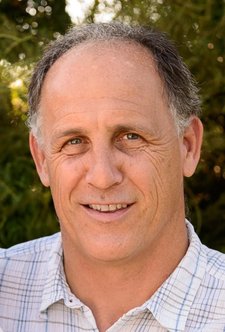
Jo Constantz
May 23, 2024
College graduation season is in full swing, and millions of students are preparing to enter the workforce.
Many new grads spend months sending resumes into the void, collecting automated rejection emails. As the labor market slows, the class of 2024 may have a challenging time getting their foot in the door.
Even for those who have a job offer in hand, making the transition from full-time school to full-time work can be a culture shock. Some young workers have expressed despair on TikTok that the 9-to-5 life they’ve been building toward for years has turned out to be a huge letdown — an experience that older generations are, unfortunately, all too familiar with.

College graduates face big adjustments to the working world.Photographer: Dan Kitwood/Getty Images Europe
We asked Bloomberg readers to tell us about their first jobs — how they got them, why they chose them, the best and worst parts, what surprised them — and what advice they would give to new graduates.
Responses have been edited and condensed.
Co-Workers Matter
I found a help wanted ad to produce help wanted ads! Honestly, working for a recruitment advertising agency was all I could get after I sent out hundreds of resumes to publishing houses in New York City and Boston.
As it was my first “real” job, everything was an adjustment and a surprise. The camaraderie of the entire staff was something I could never have predicted. It was like one big extended family in an office setting.
The job taught me how to work on a weekly deadline while juggling dozens of active projects. Every Thursday night we raced to meet the Sunday paper deadlines. It was fast, furious and stressful, but we all supported each other and celebrated making it through each week. I made lifelong friends there.
Coming from the suburbs, working every day in South Boston was a fun place to be in the early 90s. The worst: walking from my train at South Station to the office in the hard driving wind and rain. No umbrella was built to survive it.
When seeking a job, be intentional, but also open to ideas you may not have considered. Every opportunity brings insight and learning you can carry with you.
Most importantly, look for good people that you respect, enjoy and can learn from. Relationships are everything and can make all the difference in your career. Take good care of them.
— Christy Kemp, class of 1992, communications consultant, Boulder, CO
Be Open-Minded
I did Reserve Officers' Training Corps (ROTC) to pay for college, and that included four years in the Air Force. I didn't actually choose my first job. In the office I was assigned, different people had different clearances. Four of us were in the same office, but we each had access to different programs. I didn't know what my boss did, and vice versa. Lots of classified stuff. But I had a much different plan in mind.
My first job wasn't even covered in my initial training. It was specialized to the point that my boss didn't even know what I did. I'll never forget his first words: "The guy you are replacing left six months ago. I don't know what he did. I don't know what you do. There's your desk. Good luck." There were no real expectations, and I was able to pull off a few miracles once I figured out what I was doing, so I had fun with it.
The world is changing so don't be afraid to chart your own path. The working world of your parents no longer exists. Build a model that works for you.
— Robert Longley, class of 1986, consultant, Williamsburg, MA
Find Out What You Don’t Want
My college internship, which was at the company I ultimately worked for post-graduation, was in sustainability. However, the job they offered had nothing to do with sustainability. It was hot dogs and beer: an associate concessions operations manager at a major sporting arena.
I sometimes got free tickets for family and friends to sporting events and concerts. But you work whenever there is an event at the venue, so the summers were the slow season. Every other season was six to seven days a week, 10 to 14 hours a day, largely on your feet.
I managed the concessions workers, so I was always walking the stadium. I came home with sore feet and smelling of fries. It reinforced that I wanted to go into sustainability and that I needed to head back in that career direction. I also knew I never wanted to work in a stadium again.
A lot of work is not fun, but any experience is good experience and makes you a stronger candidate for future jobs.
— Bridget Keeler, class of 2015, climate strategy consultant, New York, NY
Learn From Bad Managers
My first job after graduation was an assistant editor at a medical journal. It was close to where I lived at the time and the pay for trade magazine work was better than local news outlets. The owner was not shy about yelling. She made a former New York City ad executive cry in front of the entire staff. The best thing was I stayed only six months.
What surprised me was the micromanagement. I'd heard so much about "the real world," and yet the company was run like the disciplinary office at my old high school. Having functional adults screaming in a professional setting was an adjustment I never adapted to, but it taught me a lot about how not to run a company or treat staff. I believe in leading with kindness. It can inspire loyalty and invest everyone in the mission of the organization. Additionally, I learned that management by harassment and indifference is the fastest way to lose good people.
Work for a complete j----ss at least once — preferably both early and briefly — in your career. You can learn a lot from someone who doesn't know how to manage people. With luck and effort, it will make you a better, more empathetic leader.
The key lesson is you don't have to be a jerk to succeed.
— Rod Hughes, class of 1997, public relations, Doylestown, PA
Embrace New Technology
My first job was as a business analyst at Texas Instruments. My father worked there and helped me get an internship, which evolved into a full-time job. I graduated during a recession in 1980 and there were not a lot of jobs available, so the most practical thing to do was take the offer.
Texas Instruments was, at the time, a preeminent leader in computer technology in addition to being a chip maker and defense contractor. As a business analyst, I was doing my job on an early prototype of office software that had been developed in-house. My first year crossed the bridge from large planning sheets (think a spreadsheet on paper) to using an early version of a spreadsheet program on a networked computer system.
As more companies started using this type of software I was able to switch jobs and use those skills immediately. The downside to this was I was always teaching someone how to use the software or stepping on someone’s toes who didn’t want to move forward with technology.
What surprised me most about the work environment was that, just like college, there was a hierarchy of groups. Engineering was at the top, manufacturing was in the middle and business systems at the bottom. We had been led to believe that business was the top and everything else below.
The other thing that surprised me was that the men were just grown-up frat brothers in better clothes.
Your first job will be a culture shock. Stick with it for at least two years before jumping ship. Take advantage of any mentorship opportunities. Learn to budget and save.
— Anne Agee, class of 1980, business analyst and administrator, Hurst, TX
Value Learning and Pay
As a licensed merchant marine officer, I wanted nothing more than to go to sea. New oil tankers were being built and put into service so there was a demand for US flag ship officers. I interviewed for a job as an assistant engineer on an oil tanker and was hired almost immediately.
It was a tremendous learning experience. But the worst was my first day when the chief engineer told me the sewage treatment plant was broken and I spent my first three days head down, feet up in a sewage plant. The practical experience working as a union member in a hardhat and steel-toed boots gave me a lifetime appreciation for the dignity of work.
When you take a job, balance the value of the learning experience at least as much as the income, because the learning experience will go with you into the future.
— John Dabbar, class of 1982, energy industry executive, Houston, TX
— With assistance from Nikki Naik
© 2024 Bloomberg L.P.


